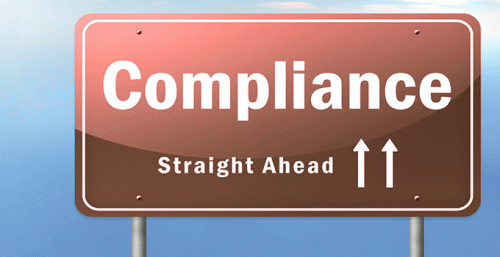Compliance
Asia's Compliance Workload Intensifies - Report

New data shows a demanding road ahead for eight APAC jurisdictions as international compliance takes root.
The TFF Group’s latest Global Business Complexity Index (GBCI), a title that more or less speaks for itself, shows that the responsibilities of company secretaries to stay ahead of global compliance issues are rising fastest across APAC countries, and are expected to keep rising over the next five years.
The Dutch-based services group singled out eight APAC jurisdictions, including Australia, China, India, Indonesia, Malaysia, Singapore, Taiwan and Hong Kong, where more demand will be placed on compliance officers as they respond to the growth of international regulations such as Anti-Money Laundering (AML) and the General Data Protection Regulation (GDPR).
The index showed that 61 per cent of jurisdictions globally have seen a rise in reporting responsibilities for company secretaries in the last three years. These have been most notably felt in Asia Pacific, where 71 per cent reported a rise, compared with 63 per cent in EMEA and 50 per cent in the Americas.
The data collected by the services firm is a good indicator of where reporting burdens are shifting and maturing as regional economies develop at different rates while often, as TMF pointed out, taking different approaches to meeting compliance rules on the ground.
The index revealed that while 25 per cent of jurisdictions globally are bound by law to hire a company secretary to comply with rules, companies in many jurisdictions make the role voluntary based on the level of compliance work and how often statutes change.
Two thirds of jurisdictions globally predict that the duties of company secretaries will increase and evolve dramatically over the next five years as global cooperation aligns on personal data protection and as demands for transparency on corporate ownership become part of the global financial framework.
APAC countries generally incur stiffer penalties for
non-compliance than other regions. The index reported that
companies which fail to comply with regulatory obligations are
subject to severe penalties in 50 per cent of APAC jurisdictions,
compared with 46 per cent in the Americas and 38 per cent in
EMEA.
Kenneth Lee, head of corporate secretarial services in Hong Kong
for the TMF Group and a director, said that enacting
international regulations is seldom a one-way top-down process,
and the devil is in the detail in how AML and other governance
issues are acted on locally.
“Although two governments may have enacted similar pieces of legislation, the requirements and practical enforcement of each are unlikely to be identical. This complexity is heightened by regulators developing digital tools, with jurisdictions implementing them through local rules,” Lee said.
Issues surrounding ownership have also come under increasing scrutiny, the index found. It called out the fact that regulators are gaining greater powers for distinguishing who is responsible – and liable – for compliance, with a growing legislation enabling authorities to identify, track and record financial transactions.
According to the firm, Ultimate Beneficial Owner (UBO) registers operate in 64 per cent of global jurisdictions, but adoption varies wildly. It is a requirement in 75 per cent of jurisdictions in the Americas and 71 per cent in EMEA but only 29 per cent in APAC. China, Hong Kong, Indonesia and Taiwan are the only four jurisdictions in APAC that operate a UBO register.
This uneven approach puts enormous emphasis on the developing role of compliance officers and how alert companies remain as Asia continues to develop its market economies. Lee warned businesses that they must take “a holistic approach and recognise that compliance demands both a global strategy and local knowledge.”